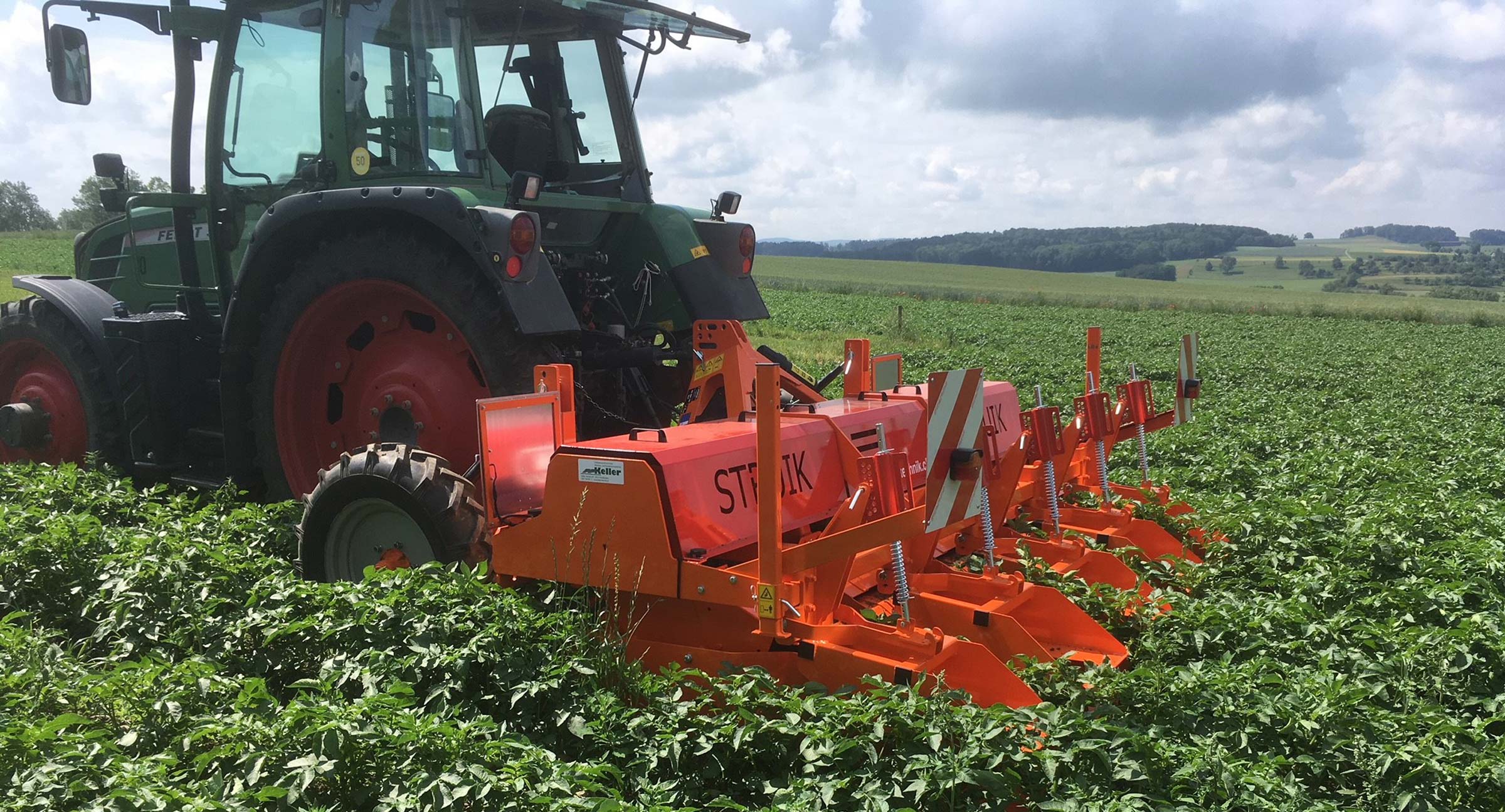The Row-FiX rotary cultivator, one of the oldest concepts of machine manufacturer Struik Holland from Wieringerwerf, has been further developed. The Row-FiX Space builds on the success of the concept with backfilling and mechanical weed control, only with a free passage eighteen centimeters higher than the current Row-Fix. “This allows us to control weeds well and rid the ridge in higher crops as well.”
The demand for the higher free passage has arisen in the peonies. This is also an advantage in organic carrot cultivation, especially in Germany. “The continued development means that we can also go through the higher crops for a very long time until they have completely grown over,” explains Wichard Struik of Struik Holland.
Renewed design of the existing Row-FiX
The drive technology of the machine has been redesigned to create the eighteen centimeters free passage. “We first looked at the existing Row-FiX and were then able to reach five centimeters higher. However, if you want to go seriously higher, the drivetrain must be mounted differently. In principle, we turned it around with the Space, placed the frame above the drive, freeing up eighteen centimeters more space, so there is actually a completely new machine.”
Additional adjustment options and specifications Row-FiX Space
The foliage tunnels for the Space have also been upgraded and therefore have more adjustment options. These haulm tunnels are available as an option. What is no different compared to the Row-FiX are the specifications. Due to the modular construction of the gearboxes and milling units, the machine is available from two to eight rows, with four- or eight-hook elements. The Row-FiX Space is equipped with adjustable ridging hoods for the ridge construction. The versatile rotary cultivator is available with a rigid frame version from two times 75 to four times 90 centimeters or with a hydraulic folding frame from six times 75 to eight times 75 centimeters.

“The Row-Fix Space has an important added value because of the higher free space so that the machine can be used more widely for more crops”
Opening doors to potato and flower cultivation
It is expected that the higher passage will open new doors to, for example, the flower world. “But the potential is broader. Think, for example, of potatoes with high foliage.” In the Netherlands, the Row-FiX Space is already running at a peony grower and in Germany at a large vegetable grower. The reactions from the field are very positive. “The first machines are already planned for 2022.”
Wichard Struik states that there is a chance that the Row-FiX Space will eventually replace its predecessor. “The Row-Fix Space has an important added value because of the higher free space so that the machine can be used more widely for more crops”

Milling elements with eight hooks
By default, the milling elements are executed with eight hooks, but to work between the rows where narrower machining is desired, you can use a four-square element. “You actually mill between the rows. The ridging takes place in the width. This makes the Row-Fix very suitable for potato or carrot cultivation.” The ridging is also widely used to control weeds. “That is ideal for the organic sector, because at the same time you can bring the back into perfect shape again by means of the width-adjustable back formers.”
Row-Fix
“The Row-Fix is one of the pillars of our program. Mechanical weed control is on the rise, not only in organic farming, but is also common back in chemical use. Moreover, the Row-Fix has been a good export product for years. For example to Canada and the United States, where the plots are so large that the growth of the potato plant is a problem in most situations. Thanks to the open milling units, milling can also be done in high crops without damaging the plant.”








